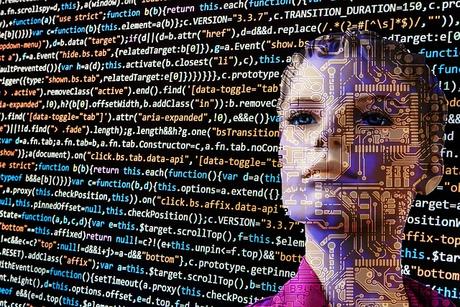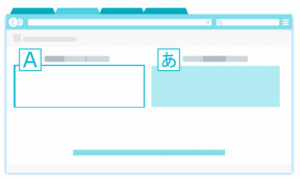
Artificial intelligence has been changing the landscape of our world since its introduction in the 1950's. It has already made a significant impact in tech industries. Now it's now permeating across verticals ranging from medicine to education. One sector that has made significant advancements with the aid of artificial intelligence is the online translation industry. In fact, AI is impacting translation in a multitude of ways. This is of importance to marketers who are facing increasingly demands for multi-lingual campaigns.
You may already have an idea of this. If you've ever translated a phrase or a sentence using a program like Google Translate, you've encountered a form of artificial intelligence. As AI transitions from the more rigid, rule-oriented Narrow AI to the human-like AI of Deep Learning more complex processes like eLearning translation and intuitive machine translation are happening faster and more accurately than ever. Here are the ways in which AI is impacting translation and why it will be a fixture well into the future:
How AI Has Already Changed the Game
Deep Learning is a relatively new innovation. Before AI was limited to a set of rules that allowed it to 'learn' through algorithms and prior programming. Now AI is almost able to work at a level equal to (or even greater than) that of the human brain. It is full of 'neurons' which allow it to learn from current experiences and past actions by using a complex and drawn out process of trial and error.
What distinguishes the new advancements within Deep Learning as truly innovative is that it proves we can develop technology that does the previously unthinkable. It's making machines think and learn like humans. Obviously, AI is impacting translation due to machine learning.
Google Translate has created something called Google Neural Machine Translation (GNMT), which streamlines the entire translation process. This new program is able to learn on its own, making up its own language through what is known as zero-shot translation . This means that even if the program has not directly translated between two languages, it is able to come up with its own code to help create a link between them.
 What Does This Mean for the Future of Translation?
What Does This Mean for the Future of Translation?

The introduction of Google's NMT tool eases translations into cultural contexts , something that has been notoriously difficult for machine translation services to do prior to these advancements. This has been extremely important for businesses. It allows them to take their content that was originally written in one language, and seamlessly translate it into another, completely different language. Without having to train the tool first.
Machine translation is a notoriously cheaper solution to human translation. When wielded correctly, NMT will reduce the costs of translation. This lets human translators focus on more complex tasks and hold more of an oversight role. Professional translation agencies will still be an essential part of important translations, but they will now have an even more advanced tool at their disposal. This will improve efficiency and cut costs for their clients.
Deep Learning is continuously doing just as its name implies. It means quickly and thoroughly adapting to and understanding human complexities while growing and developing its own databases.
